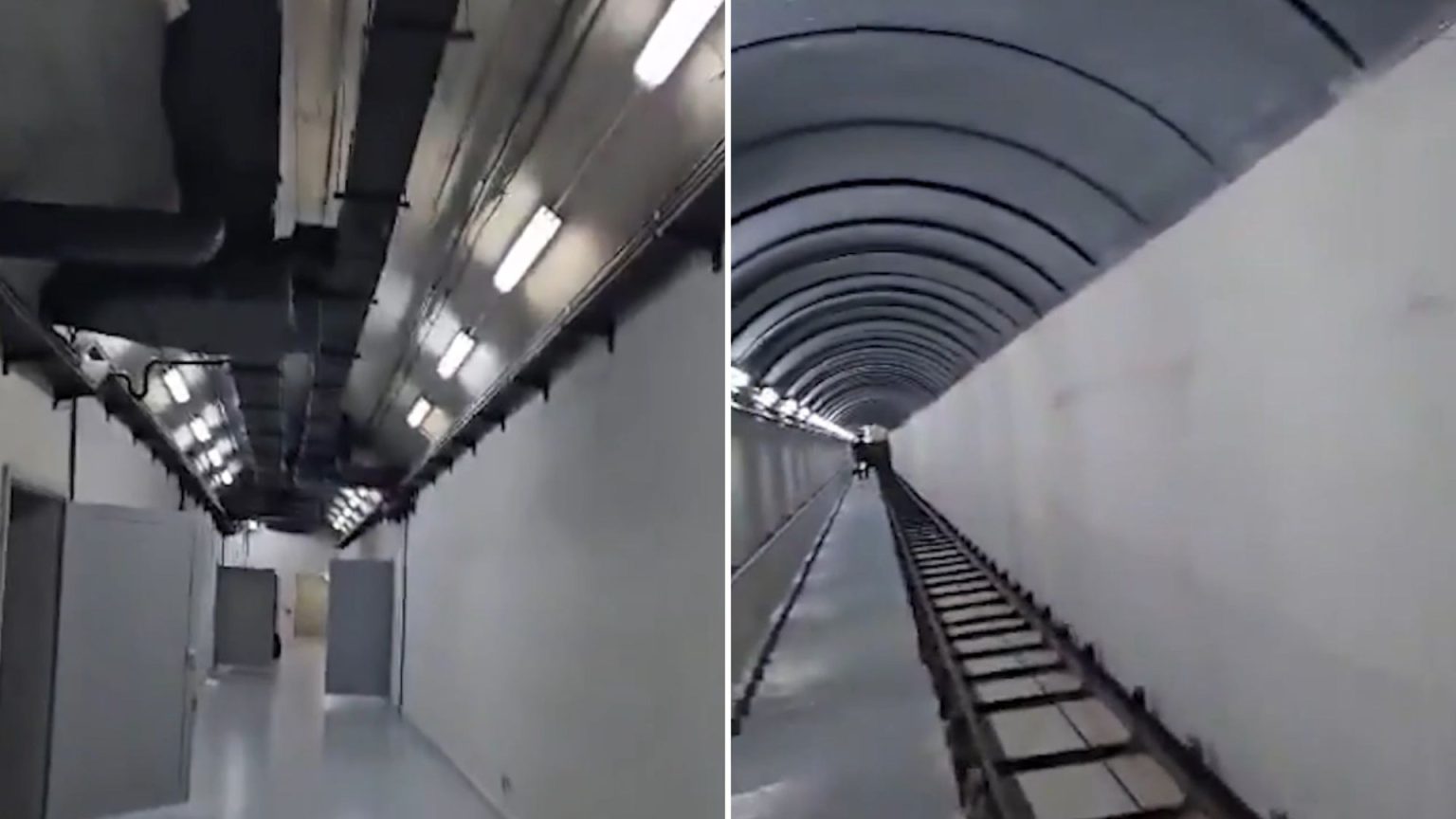Footage purportedly originating from within the recently seized mansion of Major General Maher al-Assad, brother of the deposed Syrian President Bashar al-Assad, offers a glimpse into a clandestine world hidden beneath the opulent residence. The video, reportedly filmed by rebel forces after their takeover of Damascus, reveals a network of vast underground tunnels accessible via a prominent white staircase descending from within the mansion. The sheer scale of the subterranean complex is striking, featuring high, arched ceilings, sophisticated lighting systems, robust electronic doors, and expansive chambers that appear capable of accommodating large vehicles. This has led to speculation that the tunnels may have served as conduits for the transport of illicit goods, such as the amphetamine Captagon and gold.
Within this concealed labyrinth, the footage unveils various furnished rooms, suggesting a level of preparedness for extended stays or clandestine operations. A fully equipped kitchen, stocked with recognizable brands like Pepsi and Tetley tea, sits alongside a modern sitting room complete with comfortable sofas and a coffee table. A bathroom further adds to the impression of a self-contained subterranean dwelling. The presence of discarded shopping bags and gift boxes scattered across the floors of some rooms adds an element of mystery, with one box appearing to contain a potentially valuable gold-encrusted wooden artifact. The contrast between the mundane items and the opulence hinted at by the gold-encrusted box deepens the intrigue surrounding the purpose of this hidden complex.
The discovery of this elaborate tunnel network fuels speculation about its intended function. Given Maher al-Assad’s prominent role in the Syrian military and the regime’s alleged involvement in illicit activities, the tunnels’ size and accessibility suggest they may have been more than just a refuge. The suggestion that trucks could navigate the passages lends credence to theories about their use for smuggling or other covert operations. The presence of everyday items like tea and soft drinks alongside potential valuables further muddies the waters, raising questions about who used the tunnels and for what purpose.
The fall of the Assad regime after 24 years of rule, culminating in a swift 10-day rebel offensive, marked a dramatic shift in the Syrian conflict. President Bashar al-Assad’s flight to Moscow under the protection of Vladimir Putin was met with widespread jubilation in the streets of Damascus. Rebel fighters, emboldened by their victory, documented their incursion into Assad’s presidential palace, capturing scenes of looting and ransacking. Luxury items, including Louis Vuitton goods, were seized, and the presidential garage, reportedly housing a collection of high-end vehicles such as Mercedes, Ferraris, and Audis, was also raided. The rebels’ actions mirrored similar events at the Iranian and Italian embassies, while the Iraqi embassy was evacuated to Lebanon.
The rapid collapse of the Assad regime and the subsequent scenes of looting underscore the volatile and unpredictable nature of the conflict. While the fall of Assad was celebrated by many as a liberation, the chaotic aftermath raises concerns about the future of Syria. The looting of embassies and government buildings highlights the breakdown of law and order and the potential for further instability. The fact that rebel groups with their own questionable human rights records played a key role in Assad’s downfall raises further concerns about the transition of power and the potential for future abuses.
The United States’ intervention, with over 75 precision airstrikes aimed at preventing ISIS from capitalizing on the power vacuum, adds another layer of complexity to the situation. The US presence in Syria, focused on preventing the resurgence of ISIS, underscores the ongoing threat of extremist groups exploiting the instability. While the fall of Assad represents a significant turning point, the future of Syria remains uncertain, with the potential for further conflict and instability looming large. The revelations about the Assad family’s secret tunnel network serve as a reminder of the secrecy and intrigue that characterized the regime and the complexities that will continue to shape Syria’s future.


